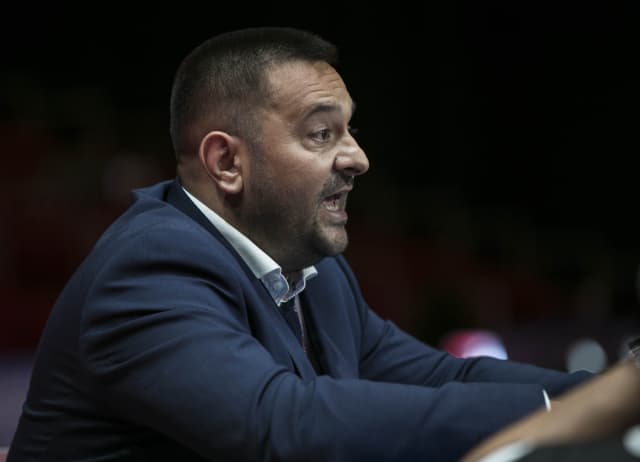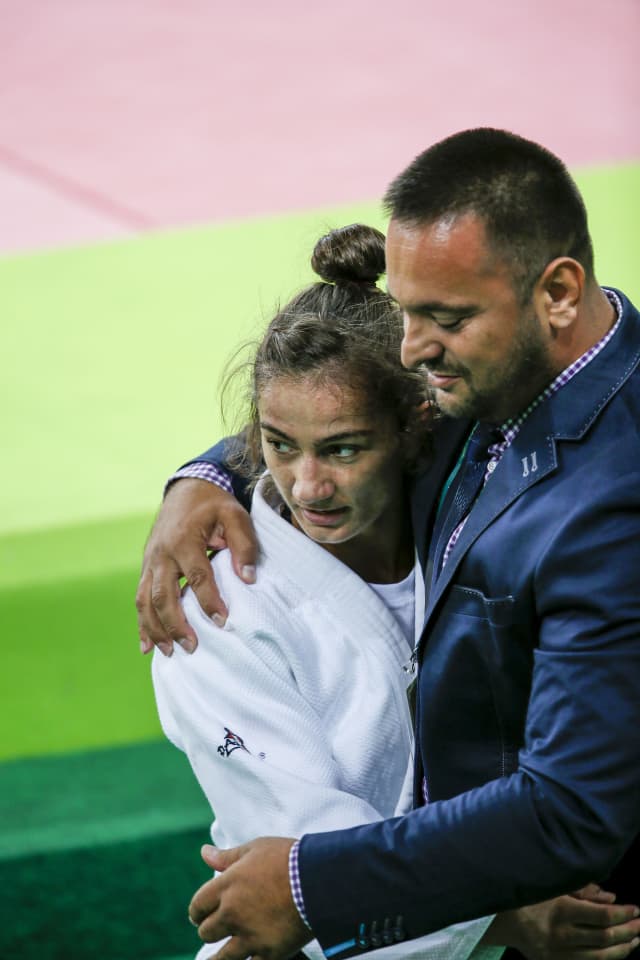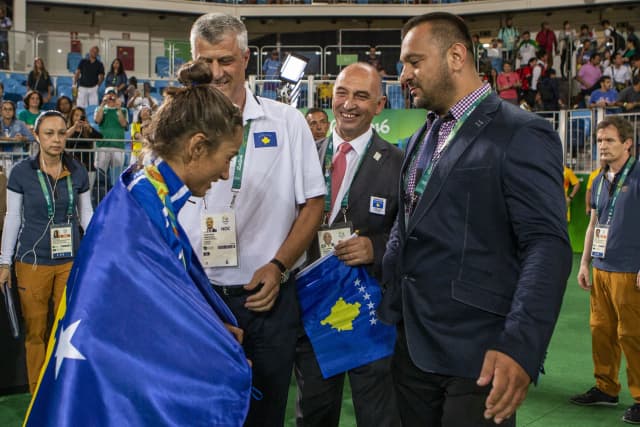- How has nutrition been managed during this time? How did it change?
This is a new situation for all of us. It’s really hard to find a solution for all the important things for my team. Also, with nutrition being so important, in the beginning we were unsure how much to change because we were not sure about the final decision for the Olympic Games. When the Olympic Games was postponed and with the situation still not getting better in the short term, then we decided to change some things. The main goal was to have healthy food to promote strong immunity for each of them, with an appropriate training programme as well.
-How important is the psychological aspect to keep judoka focussed in such a difficult period?
The main challenge for me as a coach in this period is to keep the mental health situation of my athletes good. I manage to keep my top team, 12 of them, together and isolated near our dojo. It was a hard decision because some of them weren’t ready to be isolated for an unknown duration, but I talked a lot with them and we made every decision together. At the end of quarantine, after exactly 12 weeks, I was happy and I am sure we did the right thing regarding our situation.
-What did you tell them in order to encourage training and not lose hope?
Our team was from the beginning in a different situation from other teams because at least we could continue our training and for me this was something to keep them motivated. But telling them every day that they must be grateful and enjoy this situation, to be able to do judo. I had to talk to them every day, every training session, to make sure they felt good and positive. We did also a lot of outdoor activities which helped them relax and enjoy the time that they are staying together.
Every training my main goal was to keep them up mentally and I convinced them that this long pause from competitions allowed me as a coach to build many new things and positions, to improve a lot of technical problems for each of them.
- How about you? What did you tell yourself?
Judo is my passion so getting my team together and working with them made me feel really good. I was in good mental health thanks to judo. In the end, it was after 15 years of travel, I could be for a long time with my family and children. It’s a great feeling to be with them and feel them. It’s not easy to be a coach at a high level, especially for our families.
- Are you staying together to train continuously?
We stayed together for 12 weeks but now everyone is at their home. We continue training together.
- if not together, how do you keep contact?
We still see each other every day at training, although we had one week off and so we went together for one week in Albania, just for holidays. They needed to out of Kosovo just a little bit and in this week I used that time for improving their psychological side.
- Personally how do you handle your time now? Is it different? Time at home versus time at work?
I find it really challenging, despite the extra time with family and the concentrated opportunity for technical progress. As this situation is not a finite matter of a few weeks or months, but interrupts the rest of the Olympic cycle so unexpectedly, I am already wanting to feel competitions. I want to do training with some goals which are medals and good performances in competition . This really is a very different situation and I think in September we must start to have some action. It’s not easy but we must find a way.
As a person, I am one who wants challenges and I need that feeling. As a coach of a small country with a small number of judokas always facing strong countries, I feel a duty to always push and do well.
-What are your personal feelings/thoughts about the global situation and how do you see the future of judo?
This situation must finish soon! We, as the judo family, we learn all our lives to fight for being better and better each day. In September we must start, must construct a way to do what we love: our Judo.
- Have you modified the specific judo techniques used in training for the team at this time?
Yes of course. A lot of things have been amended; it’s great time regarding this. As a coach this has been a lovely time for doing new things without the stress of competition and it’s been great for some new judokas to improve their judo performance.
-What training equipment do you like judoka to use when training alone/in isolation? (Such as Uchi-Komi bands, kettlebells, rowing machine, Bulgarian bag, wobble board, Swiss ball or many others)
Our top team was not confined individually, we were all together, so we did not use that kind of training.
- Do you think there are some positives to take from this challenging global situation? Which positives apply to you, your life or your work?
There are a lot of positive things happening for the world. It’s good to have more time with our families. Regarding work, the first two months was good but now I feel I need some action again. I feel we did a good job so I want to see the results in competition.
- Which judoka really impresses you at the moment and why?
if the question is for my team then without doubt it’s again Majlinda Kelmendi. She is a role model for how judokas must work. She gets all the gold medals in important competitons but she continues to work more than all others. She is fully motivated for more results. As a coach, sometimes I must stop her during the training because she always wants to do more than 100%.
- if you found Aladdin’s lamp and were granted 3 wishes, what would you wish for?
First of all to stop this pandemic situation and the world to start living normally again. Second, for people all over the world to live in peace, without wars. Third, to restart competitions and to win an Olympic medal or even medals for my country and make my country proud again, as we did at the Rio Olympics.



